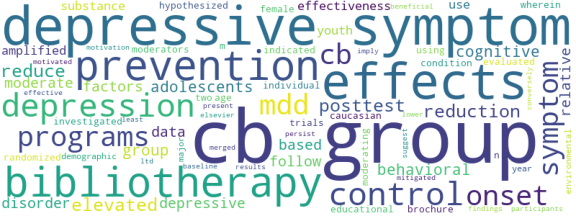| Id | 609 | |
| Author | Müller S., Rohde P., Gau J.M., Stice E. | |
| Title | Moderators of the effects of indicated group and bibliotherapy cognitive behavioral depression prevention programs on adolescents depressive symptoms and depressive disorder onset | |
| Reference | Müller S., Rohde P., Gau J.M., Stice E.; Moderators of the effects of indicated group and bibliotherapy cognitive behavioral depression prevention programs on adolescents depressive symptoms and depressive disorder onset ;Behaviour Research and Therapy vol:75 issue: page:1 |
|
| Link to article | https://www.scopus.com/inward/record.uri?eid=2-s2.0-84945198849&doi=10.1016%2fj.brat.2015.10.002&partnerID=40&md5=46356ed10782bddddf4172c997600f34 |
|
| Abstract | We investigated factors hypothesized to moderate the effects of cognitive behavioral group-based (CB group) and bibliotherapy depression prevention programs. Using data from two trials (N = 631) wherein adolescents (M age = 15.5, 62% female, 61% Caucasian) with depressive symptoms were randomized into CB group, CB bibliotherapy, or an educational brochure control condition, we evaluated the moderating effects of individual, demographic, and environmental factors on depressive symptom reductions and major depressive disorder (MDD) onset over 2-year follow-up. CB group and bibliotherapy participants had lower depressive symptoms than controls at posttest but these effects did not persist. No MDD prevention effects were present in the merged data. Relative to controls, elevated depressive symptoms and motivation to reduce depression amplified posttest depressive symptom reduction for CB group, and elevated baseline symptoms amplified posttest symptom reduction effects of CB bibliotherapy. Conversely, elevated substance use mitigated the effectiveness of CB group relative to controls on MDD onset over follow-up. Findings suggest that both CB prevention programs are more beneficial for youth with at least moderate depressive symptoms, and that CB group is more effective for youth motivated to reduce their symptoms. Results also imply that substance use reduces the effectiveness of CB group-based depression prevention. © 2015 Elsevier Ltd. |
|
| Keywords | Adolescence; Cognitive-behavioral; Depression; Moderators; Prevention |
Wordcloud:



